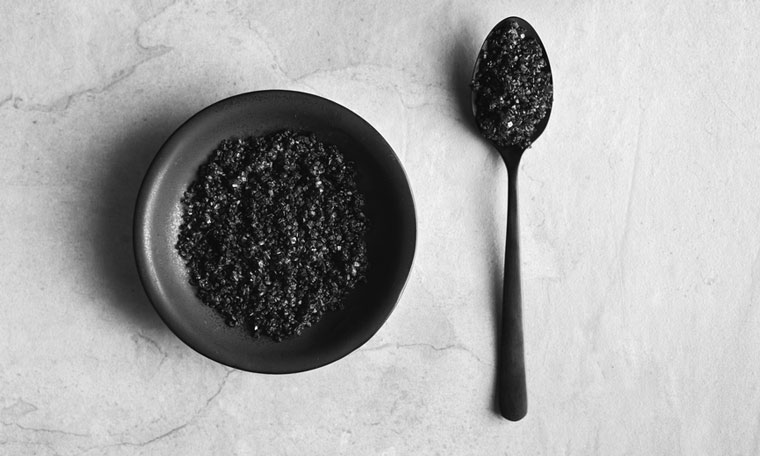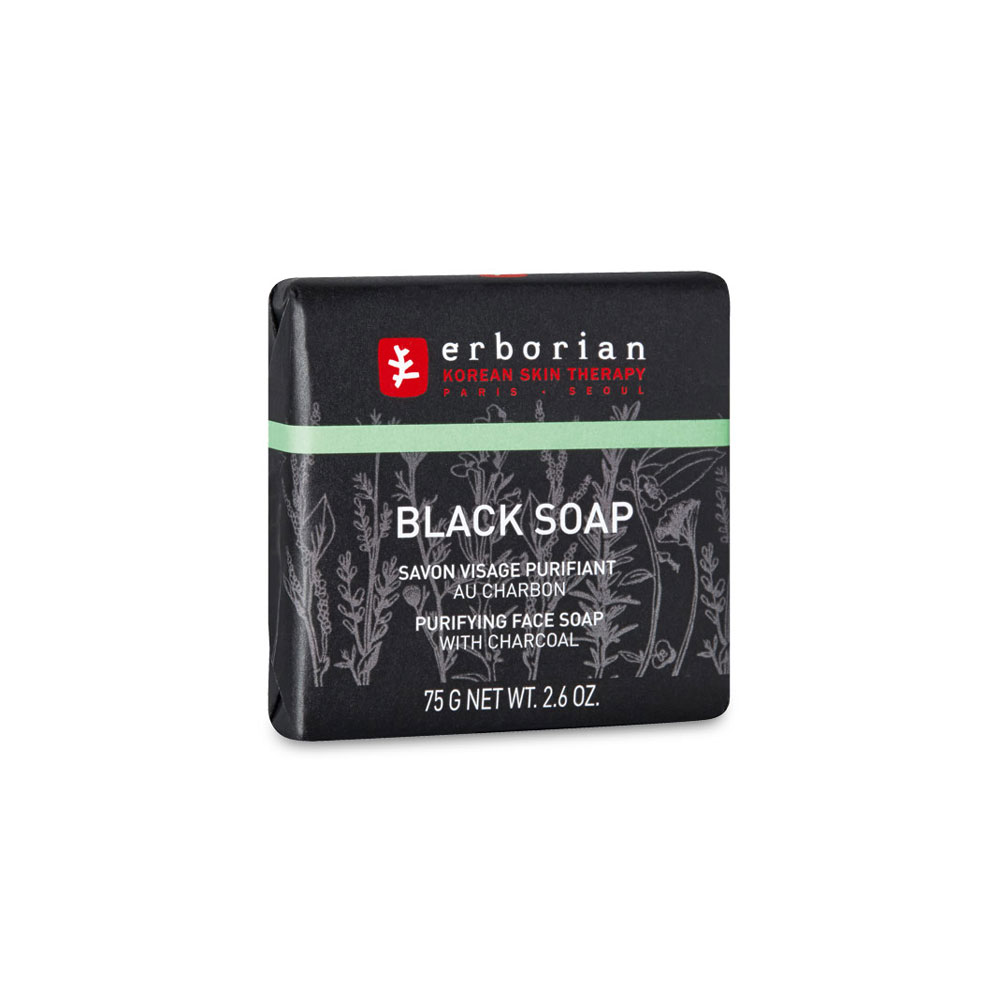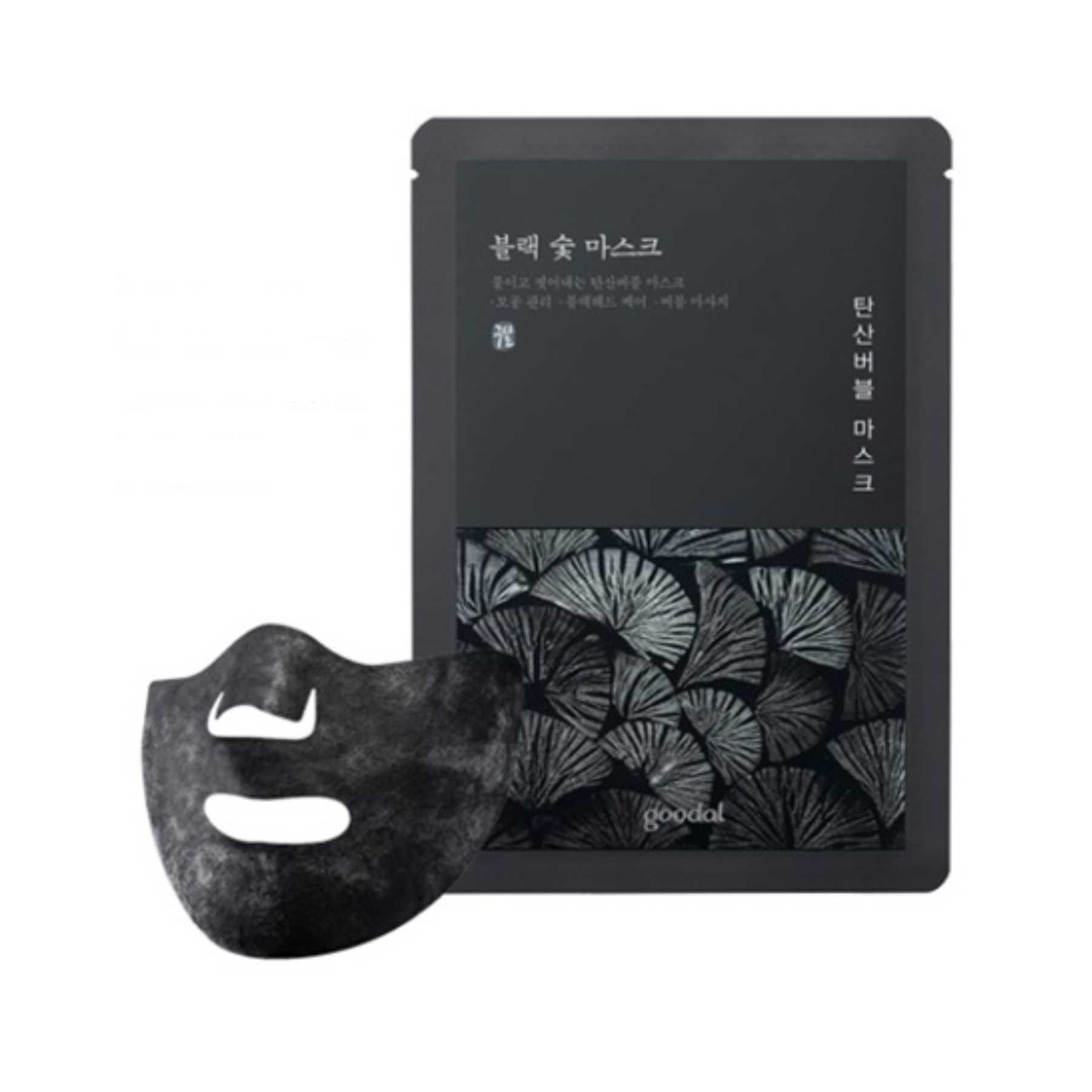Thinking of using activated charcoal for face benefits? We’ve got all the info on what this trendy ingredient does to your body and face.
If you’re a foodie like me who lives for pictures of rainbow bagels and mirror cakes, then you’re probably familiar with the charcoal craze that has permeated both food and skin care. From charcoal toothpaste and face masks to ice cream and coffee, you can get just about anything in matte black. But what is “activated” charcoal? And what is it actually doing? We turned to the experts to get to the bottom of this trendy ingredient.
What is activated charcoal?
Activated charcoal, typically made from bamboo or coconut shell, is used as a food and skin care ingredient not only for its Instagram-able appearance but also its incredible detoxing abilities. What makes it “activated” and different from just any old burnt stuff, is its negative charge. This means it easily bonds with positively charged ions and since it can’t be digested, it grabs onto those ions and takes them right out of the body. In some cases activated charcoal is used as an alternative to stomach pumping.
Dr. Vivian Bucay of the Bucay Center for Dermatology and Aesthetics, explains, “Activated charcoal has the ability to bind all kinds of compounds, ranging from toxins to medications to nutrients. Activated charcoal is odorless and flavorless and cannot be absorbed by the body. It goes through the digestive tract binding to compounds that have not been absorbed. In fact, activated charcoal is often prescribed at poison control centers as an alternative to stomach pumping. With that information in mind, that also forms the basis for the reasoning that ingesting activated charcoal will bring skin benefits.”
So can your skin actually benefit from eating activated charcoal?
Technically, yes. We’ve covered in the past the potential drawbacks of eating high quantities of sugar or simple carbohydrates, and activated charcoal does have its uses as a detoxing ingredient. But everything within moderation.
Dr. Niel Sadick, of Sadick Dermatology, confirms, “Yes, charcoal is effective in binding toxins, drugs, alcohol, and bacteria while in your system, before they reach your bloodstream. Removing sources that can lead to inflammation, dehydration, and aging affects your skin, and protects it from losing its healthy, clear glow.”
Bucay adds, “Theoretically, taking some activated charcoal after a night of drinking will lessen damage to the skin by binding the alcohol that hasn’t been absorbed before it hits the bloodstream. Alcohol can lead to a dull and dehydrated complexion, and the sugar in mixed drinks or white wine can lead to more inflammation.”
Activated charcoal detoxes, big time.
If you eat charcoal in a trendy food, activated charcoal is totally safe. Restaurants use it in a much smaller dosage, mostly to get the desired color effect. For supplements however, you should definitely consult your doctor since activated charcoal can render your medications ineffective by detoxing them from your system.
“Activated charcoal can bind a number of compounds, including nutrients and medications, so it’s important to limit consummation to no more than once a weekm” says Bucay. “It’s important to mention that there are no controlled clinical research studies comparing oral activated charcoal to FDA approved medications for acne.” Sadick emphasizes, “Yes, do not take charcoal when you’ve injected any prescription medicine, including acne medication as it can neutralize its effects. Leave a gap of two hours between taking charcoal and any other substances.”
What about applying it on your skin?
“Activated charcoal though can also lead to dehydration, so drinking plenty of water is a must,” say Bucay. “Some people feel that taking activated charcoal helps with acne by ridding the body of the toxins that lead to inflammation. Activated charcoal applied as a mask is probably a better idea because it decreases oiliness and also binds impurities found on the skin’s surface.”
This makes activated charcoal an amazing ingredient if you struggle with acne prone or oily skin. It can help reduce excess oil without being harsh or intensely drying out the skin. One particularly great product is Erborian Black Soap. This bar soap cleanser is awesome for oily skin types and it really lasts you a good amount of time making it perfect for daily use. Its charcoal formulation also makes it great for really deep cleaning your pores.
“Charcoal binds to micro-impurities in your skin, like dirt, bacteria, oil,” says Sadick, “leaving your pores clean and removing an inflammation-causing debris. Moreover, since it has a gritty texture it works great to exfoliate the skin.”
If you’re prone to really dry and/or sensitive skin like me, and more wary of a bar soap, check out Goodal Charcoal Mask, which bubbles up to provide your skin with plenty of oxygen while it removes dirt and sebum.
Bottom line:
As with anything, be sure to use charcoal in moderation. It’s a great tool for your skin and an awesome ingredient to incorporate into your routine. It gives your skin a thorough cleanse and is perfect for extracting an invisible toxins on the surface. However, before incorporating it into your good skin diet, be sure to consult with your doctor and use an appropriate amount that effectively detoxes without disrupting your normal acne medication or any other prescription drugs.










